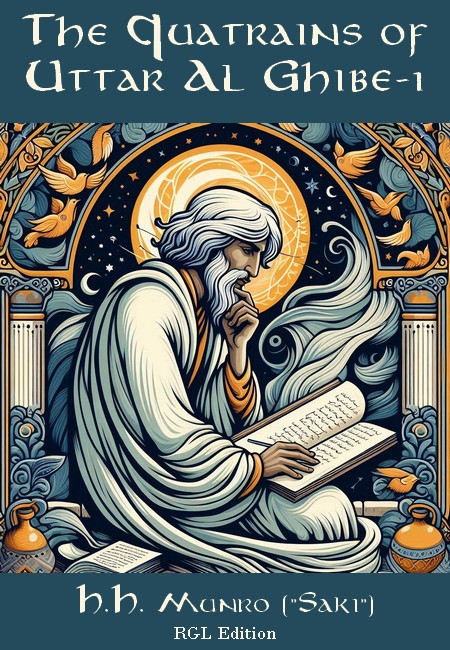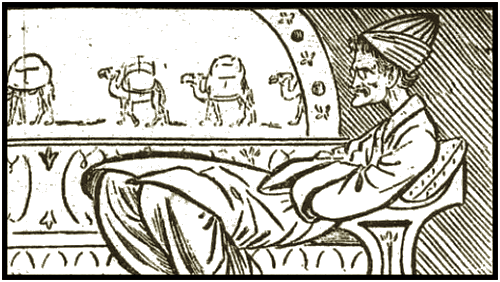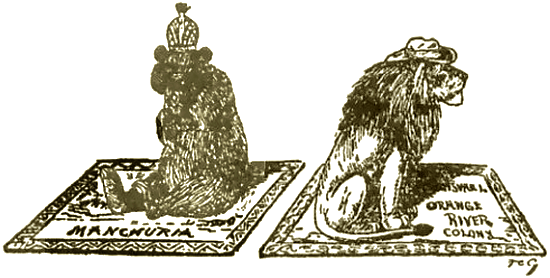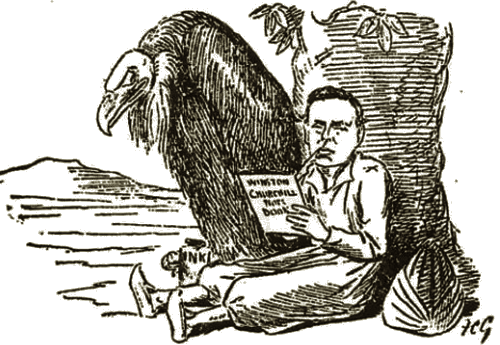
RGL e-Book Cover
Based on an image created with Microsoft Bing software
Roy Glashan's Library
Non sibi sed omnibus
Go to Home Page
This work is out of copyright in countries with a copyright
period of 70 years or less, after the year of the author's death.
If it is under copyright in your country of residence,
do not download or redistribute this file.
Original content added by RGL (e.g., introductions, notes,
RGL covers) is proprietary and protected by copyright.

RGL e-Book Cover
Based on an image created with Microsoft Bing software

THE following recently-discovered Quatrains have been ascribed with some certainty to a Persian poet of the above name who flourished at Baghdad, or, as some authorities are inclined to think, El S'where, under the Sessyl Dynasty.

Although for the most part couched in a mystical phraseology which somewhat obscures their meaning, they are valuable as throwing considerable light on the social and political life of the period.
In marvel at each man's allotted sphere
I mused "We know not wherefore we are here":
Said One who ruled o'er markets and bazaars
"I had an Uncle once." His case was clear.
Refers presumably to some Vizier having control of Trade affairs. The allusion to an "uncle" is not easy to explain; some scholars are of opinion that the word has been mistranslated, and should be rendered "special or remarkable aptitude for a post."
One railed against the lilies of the field
And sighed perchance the levelling scythe to wield:
Yet now methinks the Orchid-House itself
Is grateful for the fragrance that they yield.
The orchid was the sacred flower of one of the political Sects of the period; otherwise the meaning is somewhat conjectural
The following evidently refers to the military aggrandisements of some neighbouring State or Caliphate:
Some talk of Peace, Renounce-the-Sword, and such&mdash:
But should a Province fall into their clutch
Will they recall their cohorts and renounce
The conquest that their swords have carved! Not much.

Some blame the Primrose that so free it grows,
And lightly on the turf its colours shows:
Should you your leader over-tightly rein
Complain not if your chariot backward goes.
The connexion between the first two lines of this quatrain, which are of a pastoral nature, and the latter half, which appears to deal with the management of chariots, is not immediately obvious. It is possible that they may have been pieced together from two originally distinct fragments.
A Houri wrote a book inscribed "to shame
Those Mosques that quarrel in the Prophet's Name":
The Rose, which knowest naught of beak and claw.
Should not the Fighting-cock too harshly blame.
Meaning that those who are by nature too sweet and amiable to quarrel should not be over-hasty in censuring the bickerings of less peacefully-moulded individuals.

The following appears to be entirely mystical:
An ample note-book underneath the Bough,
A jug of ink, a ready pen—and Thou
Beside me sitting in the Wilderness—
Oh, Wilderness were Paradise enow.
For "Paradise" some translators read "paragraphed."
Saki
Roy Glashan's Library
Non sibi sed omnibus
Go to Home Page
This work is out of copyright in countries with a copyright
period of 70 years or less, after the year of the author's death.
If it is under copyright in your country of residence,
do not download or redistribute this file.
Original content added by RGL (e.g., introductions, notes,
RGL covers) is proprietary and protected by copyright.